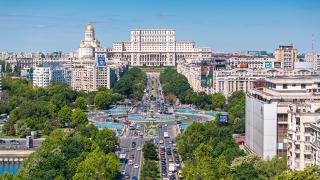Kuwait has seen its economy heavily impacted by the crisis in oil prices, a lack of diversity and the COVID-19 pandemic. A lack of investment in infrastructure has further seen demand fall for the cement sector, which relies on several importers as well as domestic cement producers.
Kuwait’s economy remains largely dependent on the oil sector, which accounted for more than 90 per cent of the country’s export revenues in the last decade. However, in 2020 Kuwait was not only hit by the fall in oil prices but also by the COVID-19 pandemic, which led to a contraction in the economy for the first time since 2017. In October 2020, the IMF said it expected a 8.1 per cent contraction in GDP for the full year. However, a recovery is forecast in 2021 and 2022 with GDP growth at 0.6 and 3.2 per cent, respectively.
In view of the coronavirus pandemic the Kuwaiti government approved a US$1.6bn fiscal support package to safeguard public sector wages while a delayed US$780m package to support ~770,000 Kuwaitis was employed in the private sector. However, this was unable to save 45 per cent of domestic companies from suspending or closing down their business as the pandemic impacted the economy.
